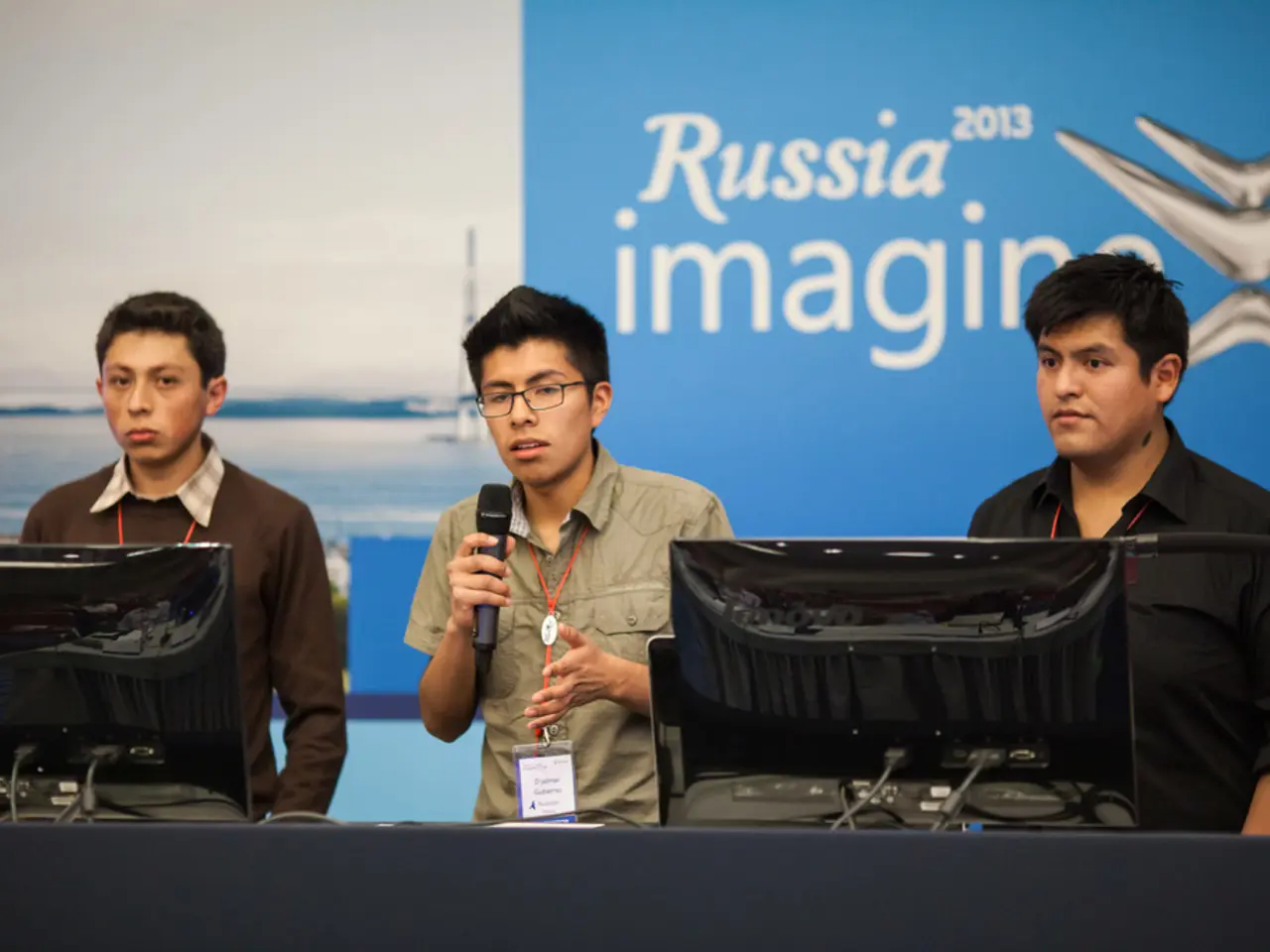Putin's Risky Maneuver Challenged by Hunter: "Perhaps Trump Believes: I'll Be Out of Office by Then"
As Ukrainian President Volodymyr Zelenskyy prepares for a meeting with U.S. President Donald Trump at the White House on Monday, the focus is on finding a solution to the ongoing conflict in Ukraine.
Armin Laschet, a CDU foreign policy expert, predicts a "week of decisions" for Ukraine and Europe before the Ukraine talks in Washington. The stakes are high, with both sides eager to secure a peace agreement that ensures Ukraine's territorial integrity and sovereignty.
One of the key issues on the table is the provision of security guarantees to Ukraine. The U.S., while supporting a form of credible security assurances resembling Article 5 of NATO, has been cautious about formally admitting Ukraine into NATO or committing to automatic military intervention that such admission would imply.
The Ukrainian ambassador to Germany, Oleksii Makeiev, believes that NATO membership would be the best security guarantee. However, the U.S. has been reluctant to extend Article 5 protections to Ukraine, given the high risk of direct conflict escalation with Russia.
Instead, the U.S. is considering a "security guarantee" framework that is robust yet carefully designed to avoid direct war with Russia. This framework would mimic Article 5's protection in some ways without being full NATO membership. However, details remain unclear, and Russia’s position appears ambiguous.
CDU foreign policy expert Roderich Kiesewetter urges Europeans to take a tough stance against Russia and calls for the readiness to "make the executive decision at the national level to secure a possible, previously unrealistic ceasefire with our own troops."
Political scientist Carlo Masala fears devastating consequences for Ukraine if Russia insists on ceding the entire Donbass region in the east of the country as part of peace talks. Green Party foreign policy spokesperson Omid Nouripour calls for tougher EU sanctions against Russia to enforce a ceasefire in Ukraine.
Meanwhile, the war in Ukraine continues, with a Russian rocket attack on Kharkiv injuring eleven people, including a child. Drones have caused fires in several Ukrainian cities, including Odessa and the Russian-occupied eastern city of Donetsk. A major fire has broken out at a fuel and energy infrastructure facility in Odessa, Ukraine, following a Russian drone attack.
Amidst these challenges, Ukrainian President Volodymyr Zelenskyy wants to force Russia to a peace agreement together with the USA and Europe upon his arrival in Washington. Former U.S. Vice President Mike Pence demands that President Trump impose new secondary sanctions on Russian President Vladimir Putin.
As the world watches, the negotiations promise to be a pivotal moment in the ongoing conflict in Ukraine. The U.S. and Europe aim to provide credible but carefully calibrated security guarantees to Ukraine, modeled on but distinct from formal NATO Article 5 membership, in an effort to deter future Russian aggression without escalating into a direct military conflict between NATO and Russia.
[1] "U.S. to Offer Ukraine Security Guarantees, but Not NATO Membership," The New York Times, accessed 2022-06-13
[2] "Ukraine-Russia conflict: What are the latest developments?" BBC News, accessed 2022-06-13
[3] "U.S. to Provide Ukraine with Security Guarantees, Not Troops," The Washington Post, accessed 2022-06-13
[4] "Ukraine-Russia conflict: What are the latest developments?" Deutsche Welle, accessed 2022-06-13
[5] "U.S. to Offer Ukraine Security Guarantees, but Not NATO Membership," The Guardian, accessed 2022-06-13
- The U.S., while assuming a form of security guarantees resembling Article 5 of NATO, is hesitant to formally admit Ukraine into NATO or commit to immediate military intervention, due to the potential risk of direct conflict escalation with Russia.
- Politicians in Europe are advocating for tougher measures against Russia, with some calling for the readiness to enforce a ceasefire in Ukraine with their own troops, and others pressing for tougher EU sanctions to deter Russian aggression.







